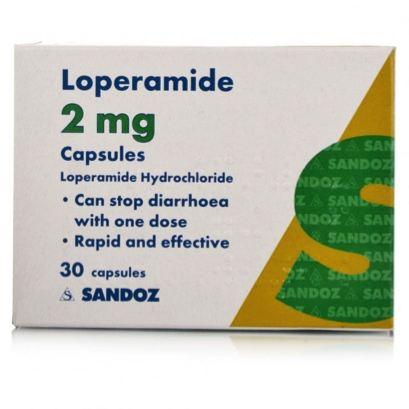MANAGE DIARRHOEA YOURSELF : Description of Drugs Used in Diarrhoe

Indications of Drugs Used in Diarrhoea
• Indications
o Loperamide is useful in symptomatic treatment of acute diarrhoea adjunct to rehydration in adults and children over 4 years. It is also used for chronic diarrhoea in adults only
o Zinc is used for treatment of acute diarrhoea and prevention of zinc deficiency and its consequences, including stunted growth in children, and slow wound healing
o Oral rehydration salt is useful in replacement of fluid and electrolyte loss in diarrhoea

Contraindications of Drugs Used in Diarrhoea
• Loperamide is contraindicated in conditions where inhibition of peristalsis should be avoided, where abdominal distension develops and in conditions such as active ulcerative colitis or antibiotic-associated colitis
• Zinc is not contraindicated to any specific group of individual Oral rehydration is not contraindicated to any specific group of individual
Dose, Dosage and Course of Drugs Used in Diarrhoea
• Loperamide
o Acute diarrhea, 4 mg initially followed by 2 mg after each loose stool for up to 5 days. Usual dose 6–8 mg daily, maximum 16 mg daily, children 4–8 years, 1 mg 3–4 times daily for up to 3 days only, 8–12 years, 2 mg 4 times daily for up to 5 days
o Chronic diarrhea, in adults initially 4–8 mg daily in divided doses, subsequently adjusted according to response and given in 2 divided doses for maintenance, maximum 16 mg daily
o Fecal incontinence initially 500 micrograms daily, adjusted according to response, maximum 16 mg daily in divided doses

• Zinc
o For diarrhea in malnourished or zinc-deficient children: 10-40 mg elemental zinc daily
o For preventing and treating pneumonia in undernourished children in developing countries, 10-70 mg/day
o For hypogeusia, (sense of taste is abnormal), 25-100 mg zinc
o For the eating disorder anorexia nervosa: 100 mg of zinc gluconate daily
o For treating stomach ulcers, zinc sulfate 200 mg three times daily
o For muscle cramps in zinc deficient people with liver disease zinc sulfate 220 mg twice daily
https://ng.jumia.is/aCDkpdBEVSEbt2HRejG8e7Rp4M8=/fit-in/680x680/filters:fill(white):sharpen(1,0,false):quality(100)/product/00/198211/2.jpg
• Oral rehydration salt is given to fluid loss, usually 200–400 mL solution after every loose motion; infant 1–1½ times usual feed volume; child 200 mL after every loose motion

Side Effects and Adverse Effects of Drugs Used in Diarrhea
• Loperamide, abdominal cramps, dizziness, drowsiness, and skin reactions including urticaria; paralytic ileus and abdominal bloating also reported
• Zinc, zinc cause nausea, vomiting, diarrhea, metallic taste, kidney and stomach damage, and other side effects. On broken skin zinc may cause burning, stinging, itching and tingling sensation
• ORS when given in excess may cause oedema and hyperchloraemic acidosis

Interactions and Precautions of Drugs Used in Diarrhoea
• Loperamide increases plasma concentration of oral desmopressin
• Zinc decrease absorption of antibiotic in the GIT there by decreasing their effectiveness For example:
o Zinc can attach to tetracyclines in the stomach. This decreases the amount of tetracyclines that can be absorbed. Taking zinc with tetracyclines decrease the effectiveness of tetracyclines. To avoid this interaction take zinc 2 hours before or 4 hours after taking tetracyclines
o Penicillamine interacts with zinc decrease how much penicillamine your body absorbs and decrease the effectiveness of penicillamine
o Alcoholism, Long-term, excessive alcohol drinking is linked to poor zinc absorption in the body
• Oral rehydration salt no known interactions since most components used are normal elements in the body
